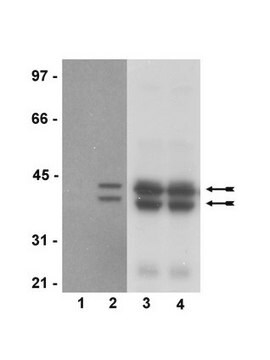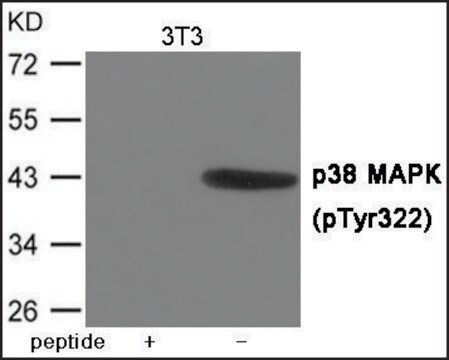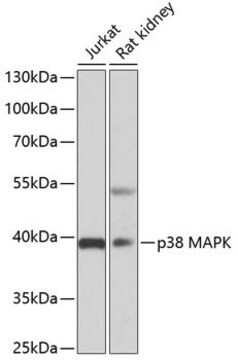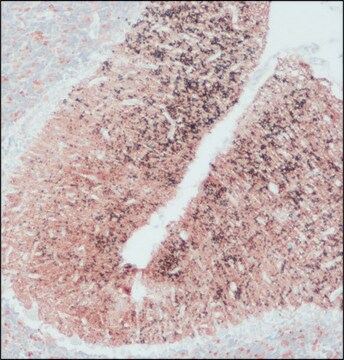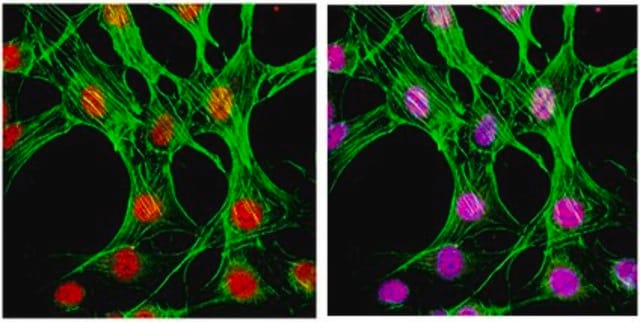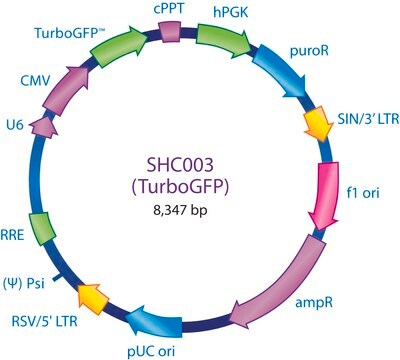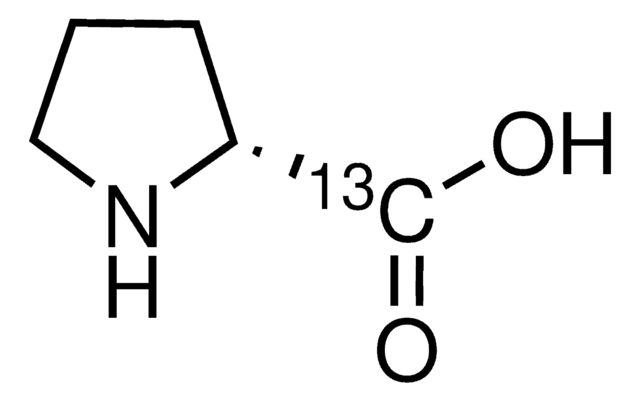09-272
Anti-phospho-p38α (Thr180/Tyr182) Antibody
Upstate®, from rabbit
Synonym(s):
SAPK2a, MAPK14, CSBP1, CSBP2, CSPB1, PRKM14, PRKM15, p38ALPHA, mitogen-activated protein kinase 14
About This Item
WB
western blot: suitable
Recommended Products
biological source
rabbit
Quality Level
antibody form
affinity isolated antibody
antibody product type
primary antibodies
clone
polyclonal
purified by
affinity chromatography
species reactivity
mouse, rat, human
packaging
antibody small pack of 25 μL
manufacturer/tradename
Upstate®
technique(s)
immunoprecipitation (IP): suitable
western blot: suitable
isotype
IgG
NCBI accession no.
UniProt accession no.
shipped in
dry ice
target post-translational modification
phosphorylation (pThr180/pTyr182)
Gene Information
human ... MAPK14(1432)
Related Categories
Specificity
Immunogen
Application
Immunfluorescence: A 1:100 dilution of this antibody detected p38α phosphorylated on both residues, Thr180 and Tyr182, in fixed HeLa cells stimulated with anisomycin.
Immunoprecipitation (IP): 2-5 μL (5-10 μL/mL) of this antibody immunoprecipitated both active p38α from anisomycin treated HeLa whole cell extract and human recombinant GST-p38α, separately, in RIPA buffer.
Immunoprecipitation Kinase Reaction (IPK): 2-5 μL of this lot immunoprecipitated phosphorylated p38α from both anisomycin treated HeLa cells as well as recombinant p38α, separately, and then placed into an in vitro Kinase reaction with recombinant GST-ATF-2 where it phosphorylated ATF-2 on Thr69/71.
Signaling
MAP Kinases
Quality
Target description
Linkage
Physical form
Storage and Stability
Analysis Note
Anisomycin treated HeLa cells
Other Notes
Legal Information
Disclaimer
Not finding the right product?
Try our Product Selector Tool.
Certificates of Analysis (COA)
Search for Certificates of Analysis (COA) by entering the products Lot/Batch Number. Lot and Batch Numbers can be found on a product’s label following the words ‘Lot’ or ‘Batch’.
Already Own This Product?
Find documentation for the products that you have recently purchased in the Document Library.
Our team of scientists has experience in all areas of research including Life Science, Material Science, Chemical Synthesis, Chromatography, Analytical and many others.
Contact Technical Service